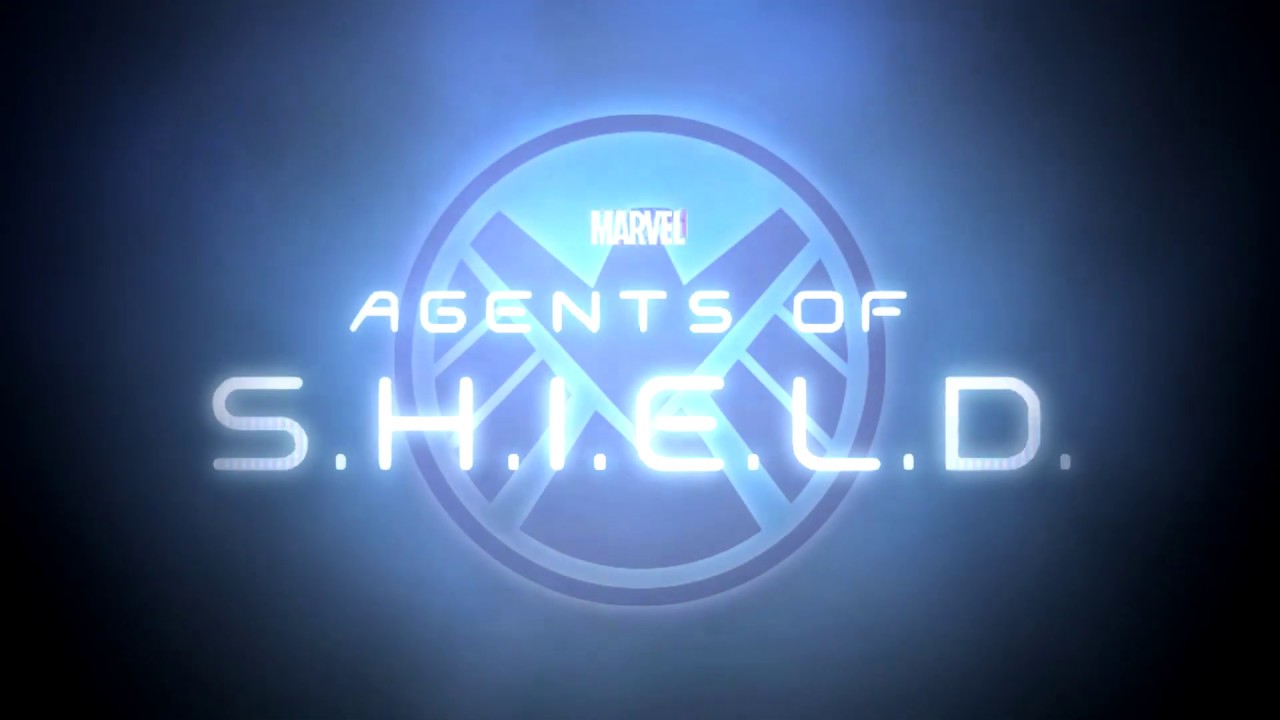NOTE: Some spoilers from throughout the seventh and final season of, “Agents of S.H.I.E.L.D.” are present in this review
It’s hard to believe that the entire Marvel Television division is effectively no more. Back in 2013, it was a big deal to experience the initial premiere of Marvel’s Agents of S.H.I.E.L.D. on ABC (or CTV, for us Canadians), the first-ever satellite television series to operate within the unseen corners of the Marvel Cinematic Universe, the very corners that Marvel Studios’ movie catalogue wouldn’t be touching on. While the show’s popularity heavily tapered off after its more contested first season, Agents of S.H.I.E.L.D. eventually gathered a very devout cult following with subsequent seasons, all of which were far superior in quality to the show’s shaky initial vision, which finally became interesting once 2014’s Captain America: The Winter Soldier made the bold decision to obliterate the MCU’s S.H.I.E.L.D. entirely. This led to a darker, more effectively covert take on Agents of S.H.I.E.L.D. from its Season One climax onward, as a small, surviving splintering of S.H.I.E.L.D. agents secretly worked to protect Earth against threats that escaped the watchful eyes of the Avengers.
This direction would go on to inform numerous other Marvel Television projects set in the MCU as well. Some, like Daredevil and Agent Carter, would be stellar gems that shone just as brightly as the finest Marvel Studios movies, while others, like Iron Fist and Inhumans, would be frustrating duds that stained the otherwise pristine MCU catalogue, and of course, there were middle-of-the-road offerings like Runaways and The Punisher that didn’t really elicit a strong reaction one way or the other from Marvel fans nor mainstream TV enthusiasts. Now however, all of those shows have since come to an end (despite some rumblings that a few of them, particularly the Netflix shows, may be revived on platforms like Hulu, Disney+ or FX in the coming years), a few quite prematurely, as Marvel Television has now been absorbed into the overall Marvel Studios brand, setting the stage for a new wave of MCU television shows made for Disney+, which will now start openly connecting to Marvel Studios’ movies.
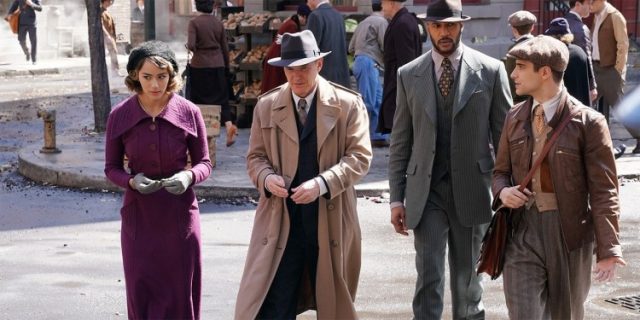
The reason why I bring up the spiritual death of Marvel Television, at least in its original form, is because it’s difficult to talk about Agents of S.H.I.E.L.D.’s seventh and final season without truly acknowledging it as the end of an era for genre television, and for the MCU at large. Agents of S.H.I.E.L.D. is easily the longest-running MCU television series by more than half (not only did it run for an impressive seven seasons, considering its modest ratings, it’s also the MCU’s only Marvel Television series to successfully make it past a third season!), and it’s also the final Marvel Television series out of the MCU’s former TV crop to come to a conclusion, officially closing out Marvel Television’s entire undercover era for the lesser-known realms of the MCU. That is, if we don’t count Helstrom anyway, the true final offering from what was once Marvel Television, which debuts on Hulu in the U.S. this Fall (and currently seems to have no plans to reach international markets, even here in Canada), and is curiously devoid of any Marvel branding, no doubt because it’s not on-brand for new Marvel CCO, Kevin Feige’s extra-connected, crowd-pleasing movie and TV vision for the MCU’s future.
So, now that the Marvel Television saga is outlined and out of the way, how does Agents of S.H.I.E.L.D. manage to close itself out on its own merits? Well, I will say that the show’s seventh and final season isn’t its strongest, honestly. Still, it remains more appealing than Agents of S.H.I.E.L.D.’s shakier Season One direction, mostly sticking the landing with a nostalgic, fan-pleasing series of conflicts across several decades of the MCU’s history, as the S.H.I.E.L.D. crew undertakes one last mission to save Earth from the invading force of Chronicoms, who now aim to erase S.H.I.E.L.D. from history. This is done by chasing the Chronicoms through history, foiling their repeated attempts to try and derail the backstory of S.H.I.E.L.D. from the past, using a Time Drive rigged to allow the Zephyr to ride the Chronicoms’ own history-hopping coattails, immediately following them to the location and year of their next operation. It’s weird, unpredictable, and highly experimental, but if nothing else, Agents of S.H.I.E.L.D.’s final season is certainly not wanting for creative ambition, now reinventing itself with new backdrops and threats every couple of weeks, rather than every couple of months.
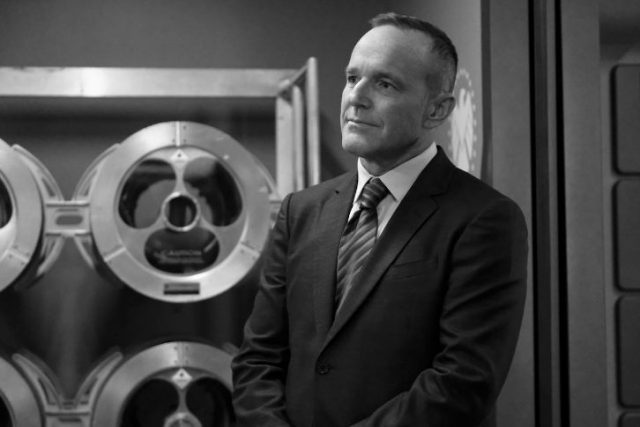
These conflicts can be a bit of a mixed bag at times. Fortunately, the upside here is that, if one historical era doesn’t work that well, another era and set of conflicts will quickly follow it up. Like the previous Season Six, Agents of S.H.I.E.L.D.’s final season also spreads itself across a fairly lean 13-episode stretch, keeping the pacing tight, and refusing to settle into a predictable groove in most instances. It’s also appreciated that the show is once again not afraid to tie itself into the MCU at large either, after Season Six willfully dodged any connection to the then-new Avengers: Endgame especially, for worry of spoiling that movie if the season happened to premiere before it hit theatres. The fact that this show’s entire final season more or less takes place in the past also effectively gets around the thorny issue of Thanos’ fateful Infinity Stone-powered snap, The Decimation, somehow not affecting the Agents of S.H.I.E.L.D. characters at all. That gaping plot hole is significantly less distracting when the S.H.I.E.L.D. crew is removed from the MCU’s main timeline, even temporarily.
Speaking of time, the final season of Agents of S.H.I.E.L.D. does craft a legitimately compelling, time travel-fueled mystery surrounding the mysterious disappearance of fan-favourite character, Fitz, who only properly shows up for the series finale. While this mystery is initially hobbled by having to work with the confusing and inconsistent MCU time travel rules that were established in Avengers: Endgame, more so than Agents of S.H.I.E.L.D.’s own former time travel mandates as dictated by the Monoliths, the season does manage to craft a legitimately fun and clever ‘time heist’ with Fitz. This in itself is a clever nod to Avengers: Endgame’s premise, with Fitz effectively spending the entire season in the Quantum Realm, trusting his friends to bat off every attempt by the Chronicoms to erase S.H.I.E.L.D. from history, before springing a trap at the end of the mission, which wraps back around to Season Six’s former climax at Izel’s temple. This creates a closed time loop that nonetheless results in the neutralization of the Chronicoms, and a future where Earth is invasion-free, and free to pursue numerous future threats in upcoming MCU media across movies and television.
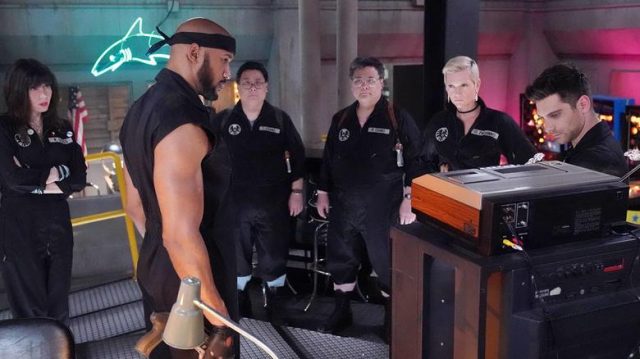
As for the journey to that clever and cool ending, like I said, some of it works better than others. There’s some pretty big stretches with the heroes, for starters, as Yo-Yo’s Inhuman powers are suddenly completely changed, after they arbitrarily stop working earlier in the season, while May randomly gains the ability to read the emotions and inner thoughts of anyone she’s close to, something that more or less serves as a handy plot device to identify Chronicoms with. Likewise, some of the villains are ultimately more credible than others. While the Chronicoms’ ‘Predictor’, Sibyl is a clever and imposing enemy, she’s eventually complemented by Nathaniel Malick, who is now spared from being a sacrifice on Maveth, due to the new reality’s altered history. Nathaniel subsequently becomes an initially imposing, but eventually infantile psychopath that forcibly steals Daisy’s Inhuman abilities, before manipulating Daisy’s long-lost sister, Kora (oh yeah, that’s a thing now!), into joining his cause of ‘remaking’ the world’s S.H.I.E.L.D.-controlled power structure. Kora, meanwhile, is also a woefully inconsistent, head-scratching character that doesn’t truly have enough breathing room in the story to properly find credible motivations. All of Kora’s transgressions are suddenly forgotten at the end of the season to boot, when she joins Daisy in the newly-spared present, to transparently set up the debut of spacefaring S.H.I.E.L.D. offshoot, S.W.O.R.D. in the MCU’s near future.
While there are some problematic characters however, there are still plenty of standout storylines throughout the season. One surprisingly great twist is former Agent Carter supporting hero, Daniel Sousa being recruited into the Agents of S.H.I.E.L.D. crew, after the LMD Coulson that the older Simmons rescued her team with helps fake Sousa’s former historical demise, allowing Sousa to be removed from history, and fight alongside the heroes to save the world from the Chronicoms. Sousa in turn also develops a romance with Daisy, who finally finds a stable, steadfast partner that survives her company, and finally helps her achieve a happy ending in the series finale. It was also interesting to see Simmons struggle with an implant in her spine that forcibly suppressed memories of Fitz, even creating a convincing red herring that eventually suggests Fitz died of cancer off-screen, only for this to eventually be revealed as part of the illusion, when Nathaniel and the Chronicoms try to extract Fitz’s whereabouts from Simmons’ mind. It’s also worth noting that possibly the best episode of the season is directed by Simmons’ actress, Elizabeth Henstridge as well, wherein Daisy and Coulson must quickly work through a time loop to save their allies from imminent destruction within a ‘Time Storm’. This episode even ends with the heartfelt sacrifice of Enoch, who ultimately gives his life to make sure that the other Agents of S.H.I.E.L.D. characters can live on within the MCU’s bold new era.
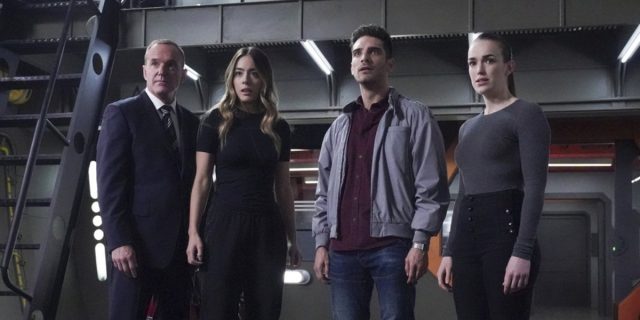
Finally, there’s some clever history and Easter eggs related to both Agents of S.H.I.E.L.D.’s own history, as well as the history of the MCU at large, throughout this final season, beginning when the heroes must begrudgingly preserve Hydra in order to preserve S.H.I.E.L.D., by protecting Nathaniel Malick’s (and Gideon Malick’s) then-young father, Wilfred Malick. This eventually culminates in the creation of what’s essentially an ‘Earth-2’ for the MCU as well, when Deke must stay behind in the parallel 1980’s, to ensure the escape of his friends, following Captain America: The Winter Soldier’s Project Insight launching several decades too early, and successfully destroying S.H.I.E.L.D. in 1983. This could provide a convenient spot through which to dump anything that Marvel Studios no longer wants to be canon from the Marvel Television catalogue (they can start with Inhumans!), on top of presenting some interesting possibilities for alternate superhero teams that could rise up in that reality, instead of the Avengers. Remember, if there’s no S.H.I.E.L.D. in Deke’s new reality, the events that lead to the Avengers’ creation, from Captain Marvel onward, logically can’t happen. Perhaps a new band of superheroes could end up eventually crossing dimensions to interact with the main MCU timeline, maybe even led by a Nick Fury-esque Deke?
Fortunately, another thing I can definitely say with confidence is that Agents of S.H.I.E.L.D. achieves a satisfying ending for its storytelling and its characters, and does so without banishing them to the alternate timeline that the show’s final season ultimately created, even if Deke at least does end up stuck in that alternate reality in the end. It would have been easy to completely dump all of Marvel Television’s characters and lore in that alternate reality, completely removing any obligation by Kevin Feige or Marvel Studios to acknowledge them in upcoming MCU movies and television shows. Fortunately though, most of the current Agents of S.H.I.E.L.D. leads, along with all of the show’s surviving OG leads, do manage to make it back to the main MCU timeline in the end. The Decimation ultimately remains unaddressed, despite the season and series ending during the MCU’s 2020 (when half of the universe’s population is still supposed to be erased by Thanos’ snap), but the Agents of S.H.I.E.L.D. characters do nonetheless achieve great resolutions, between Fitz and Simmons retiring with their infant daughter, May becoming a professor for the freshly-minted Coulson Academy, and the LMD Coulson traveling the world on his own terms. It’s also nice to see that the door is left open for these characters to return in future MCU media someday, particularly with Mack and Yo-Yo appearing to work within a potentially re-legitimized S.H.I.E.L.D., and Daisy, Kora and Sousa all appearing to join the aforementioned S.W.O.R.D.
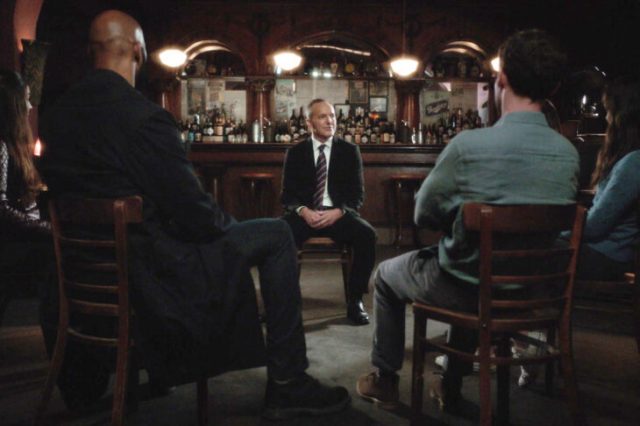
Considering the incredible hot streak that Agents of S.H.I.E.L.D. has been on over the past several years, it’s a shame to see the show become a little more uneven during its final episodes. Overall though, the seventh and final season of Agents of S.H.I.E.L.D. is still clever and competent enough to satisfy enduring fans, even if the show’s climactic foes, and a few final character conflicts, leave a bit to be desired. Still, you really can’t fault this season’s outstanding creative ambition, as Agents of S.H.I.E.L.D. boldly reinvents itself every couple of weeks, by hopping between a whole smattering of historical eras, complete with cutely tailoring its storytelling style to emulate various real-world fiction tropes from those eras. The result is a season that isn’t always perfect, but is nonetheless packed to the gills with excitement, humour, drama and heart. Agents of S.H.I.E.L.D. may not have ultimately gone out on the highest note that it’s ever achieved in its seven-year history, but it did manage to maintain the majority of its creative scope and novelty right through to the very end, while gracefully transitioning its surviving lead characters to promising new stations in the MCU. Even when this final season stumbles, its sheer ambition is to be applauded. It allows not just Agents of S.H.I.E.L.D., but Marvel Television itself, to ride into the sunset without ever settling into complacency, thus making the tour through the MCU’s lesser-known corners well worth the journey in the end, despite whatever bumps occurred on the way.

